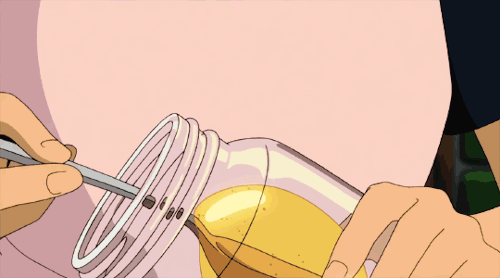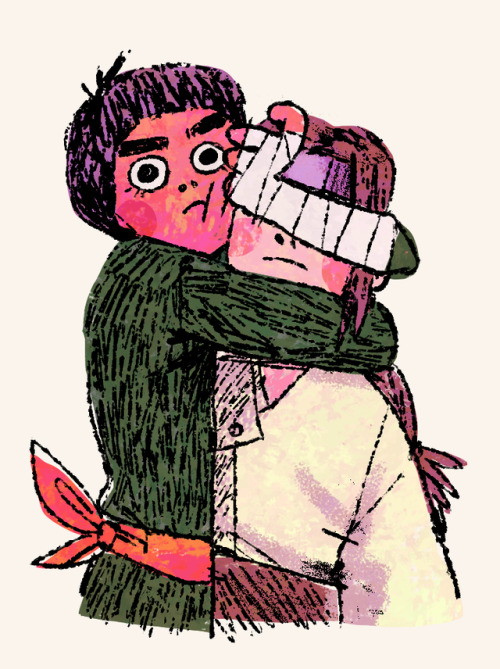Tips For Future And Current Psych Majors From A Psych Major
tips for future and current psych majors from a psych major
know that psychology isn’t just having someone sit on a couch and talk about their feelings. there’s research, psychiatry (the more chemistry side of psych), music therapy, clinical psychology, counseling psychology, and so. much. more.
figure out your final goal. there are literally hundreds (ok i may be exaggerating) of different fields within psychology, so work backwards
do some research and determine a couple fields of psych that you may want to get a job in after you graduate. there’s research, therapy, clinical psychology, school psychology, etc. it doesn’t have to be one final choice, it could be more than one, but it’s good to narrow it down to a few and have an idea for your top choice.
take classes related to the fields you’ve chosen to help you get a better understanding of what your future career would be like, and from there figure out which class’ material you liked the best (material. not the best teacher). this will help you narrow down to your top choices and help you feel more confident in your goals.
know that you don’t really have to choose until maybe your 3rd or even 4th year of college. and even then, you don’t really have to choose until after you graduate and are looking for a job, but having a field in mind will help you feel more prepared for life after college
know that there is a lot of memorization. parts of the brain, different emotions, diseases, ground breaking studies; you will need to memorize all of these things. flash cards will become your best friend when memorizing this stuff.
brain diagrams are everywhere. a lot of psychology crosses over into neurology, and you’ll have to learn what specific parts of the brain are responsible for different functions. it helps to draw out these diagrams and color code them for each section of the brain. they don’t have to look pretty. an oval with a vertical line going down the middle is good enough to get the general idea of a brain.
expect big class sizes. 100 and 200 level psychology courses are common electives among non-psych majors, so know that a lot of your classes in your first year or two will most likely be lecture classes, meaning you’ll have to do the majority of the learning on your own. this is when it’s very important to hold yourself accountable for your learning and to study on a regular schedule.
take part in experiments if you can. pretty much every college has student-run research experiments that you can be a subject in (and sometimes they’ll pay you to participate). be a participant in as many as you can. not only are they fun and interesting, but they’ll give you a better understanding of what to expect in higher level courses.
know that your professors are there for you. most psych professors are the nicest people you’ll ever meet. and since they’re experts in psychology, they understand the stress you are under and they are typically more than happy to answer questions or even just be an ear to listen while you vent.
if you can, get ahead in your classes. look ahead in your text books, get notes from people who have already taken the class before, or just watch psych videos like Crash Course to familiarize yourself with stuff you’ll probably need to learn at some point. and this goes for every class/major. it’s a very easy way to not feel like you’re drowning when you have a difficult class. (i’m more than happy to share some of my psych notes with anyone! message me and i can send you some of my notes if you want!)
use yourself as a reference. a big part of psychology is personality and behavior, and you yourself are a prime example of a personality. take personality quizzes and find out more about yourself the help you learn why you are the way you are. it will give you a better understanding of how the brain works and it may help you make connections in some topics. (click here for one of my new favorite personality tests app)
if you have any questions, feel free to message me and ask! i’m an educational psycholgy (major) and special education (minor) student, and i’m going to start taking graduate level classes in a year to get a masters in educational psych, so hopefully i’ll be able to answer your questions to the best of my ability. and if not, hopefully i’ll at least be able to point you in the right direction! love you guys! - sam xx
More Posts from Yuunfi and Others
just sent my irl best friend an incredibly risky fukinf link WHY DOES THIS ALWAYS HAPPEN WITH HER SPECIFICALLY i will shove my head in an oven

Cheryl Strayed, Tiny Beautiful Things: Advice on Love and Life from Dear Sugar
Another point for why it’s important to own your own copies of music and media, and not use streaming services, is because the copy you own can’t be taken back.
(This is also a good time to remind people that yout*be to mp3 converters still exist).









🍯🐝 1. mary oliver, devotions: softest of mornings / 2. ponyo (2008) / 3. vanessa angelica villarreal, a field of onions: brown study / 4. only yesterday (1991) / 5. federico garcía lorca, new heart / 6. @heartcountry, the honey running down my arm / 7. red honey as a result of bees feasting on cherries / 8. nikos kazantzakis, report to greco / 9. by nur_light / 10. @heartcountry, the things that don’t rot



Hold onto your loved ones!!!!!!!!!!!!!!
.
-
 dreamdust93 liked this · 2 years ago
dreamdust93 liked this · 2 years ago -
 ednieee liked this · 3 years ago
ednieee liked this · 3 years ago -
 sugar-spicestudies liked this · 4 years ago
sugar-spicestudies liked this · 4 years ago -
 tanpatinta liked this · 4 years ago
tanpatinta liked this · 4 years ago -
 jupit-er-loves reblogged this · 4 years ago
jupit-er-loves reblogged this · 4 years ago -
 airacademiccc-blog liked this · 4 years ago
airacademiccc-blog liked this · 4 years ago -
 mistletoe-official liked this · 5 years ago
mistletoe-official liked this · 5 years ago -
 bathobatsho liked this · 5 years ago
bathobatsho liked this · 5 years ago -
 tratshka reblogged this · 5 years ago
tratshka reblogged this · 5 years ago -
 tratshka liked this · 5 years ago
tratshka liked this · 5 years ago -
 selfcarehope liked this · 5 years ago
selfcarehope liked this · 5 years ago -
 shalomforworld liked this · 5 years ago
shalomforworld liked this · 5 years ago -
 home-fireplace-blog liked this · 5 years ago
home-fireplace-blog liked this · 5 years ago -
 unbiasedcompassion liked this · 5 years ago
unbiasedcompassion liked this · 5 years ago -
 bona-fidelovin liked this · 5 years ago
bona-fidelovin liked this · 5 years ago -
 sexyninjakitty96 liked this · 5 years ago
sexyninjakitty96 liked this · 5 years ago -
 cloakandslushie liked this · 5 years ago
cloakandslushie liked this · 5 years ago -
 tinyults93-blog liked this · 5 years ago
tinyults93-blog liked this · 5 years ago -
 tinyults93-blog reblogged this · 5 years ago
tinyults93-blog reblogged this · 5 years ago -
 alquariel liked this · 5 years ago
alquariel liked this · 5 years ago -
 livetolearntolive reblogged this · 5 years ago
livetolearntolive reblogged this · 5 years ago -
 notn0t liked this · 5 years ago
notn0t liked this · 5 years ago -
 izukublr reblogged this · 5 years ago
izukublr reblogged this · 5 years ago -
 elcrivainstudies reblogged this · 5 years ago
elcrivainstudies reblogged this · 5 years ago -
 lonelyheart-clubband reblogged this · 5 years ago
lonelyheart-clubband reblogged this · 5 years ago -
 tracestudies liked this · 6 years ago
tracestudies liked this · 6 years ago -
 diamondskyjjkmt liked this · 6 years ago
diamondskyjjkmt liked this · 6 years ago -
 shineeskz reblogged this · 6 years ago
shineeskz reblogged this · 6 years ago -
 heart-colored liked this · 6 years ago
heart-colored liked this · 6 years ago -
 tasty-chair liked this · 6 years ago
tasty-chair liked this · 6 years ago -
 charlooti-blog reblogged this · 6 years ago
charlooti-blog reblogged this · 6 years ago -
 invincible-for-you liked this · 6 years ago
invincible-for-you liked this · 6 years ago -
 untypicalberry reblogged this · 6 years ago
untypicalberry reblogged this · 6 years ago -
 studylikearistotle reblogged this · 6 years ago
studylikearistotle reblogged this · 6 years ago -
 catatowastaken reblogged this · 6 years ago
catatowastaken reblogged this · 6 years ago -
 catatowastaken liked this · 6 years ago
catatowastaken liked this · 6 years ago






